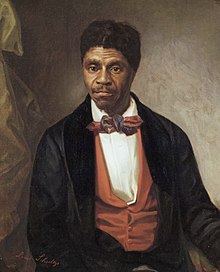
Back Cronologia degli eventi principali che hanno portato alla guerra di secessione americana Italian Cursus eventorum quae ad Bellum Civile Americanum adduxerunt Latin Timeline of events leading to the American Civil War SIMPLE
This timeline of events leading to the American Civil War is a chronologically ordered list of events and issues that historians recognize as origins and causes of the American Civil War. These events are roughly divided into two periods: the first encompasses the gradual build-up over many decades of the numerous social, economic, and political issues that ultimately contributed to the war's outbreak, and the second encompasses the five-month span following the election of Abraham Lincoln as President of the United States in 1860 and culminating in the capture of Fort Sumter in April 1861.
Scholars have identified many different causes for the war. Among the most polarizing of the underlying issues from which the proximate causes developed was whether the institution of slavery should be retained and even expanded to other territories or whether it should be contained, which would lead to its ultimate extinction. Since the early colonial period, slavery had played a major role in the socioeconomic system of British America and was widespread in the Thirteen Colonies at the time of the American Declaration of Independence in 1776. During and after the American Revolution, events and statements by politicians and others brought forth differences, tensions and divisions between citizens of the slave states of the Southern United States and citizens of the free states of the Northern United States (including several newly admitted Western states) over the topics of slavery. In the many decades between the Revolutionary War and the Civil War, such divisions became increasingly irreconcilable and contentious.[1]
Events in the 1850s culminated with the election of the anti-slavery Republican Abraham Lincoln as president on November 6, 1860. This provoked the first round of state secession as leaders of the cotton states of the Deep South were unwilling to remain in what they perceived as a second-class political status, with their way of life now threatened by the President himself. Initially, seven states seceded: Alabama, Florida, Georgia, Louisiana, Mississippi, South Carolina and Texas. After the Confederates attacked and captured Fort Sumter, President Lincoln called for volunteers to march south and suppress the rebellion. This pushed four other states in the Upper South (Virginia, North Carolina, Tennessee and Arkansas) also to secede, completing the incorporation of the Confederate States of America by July 1861. Their contributions of territory and soldiers to the Confederacy ensured, in retrospect, that the war would be prolonged and bloody.
- ^ James M. McPherson, Battle Cry of Freedom: The Civil War Era (1988), ch. 1–8.
